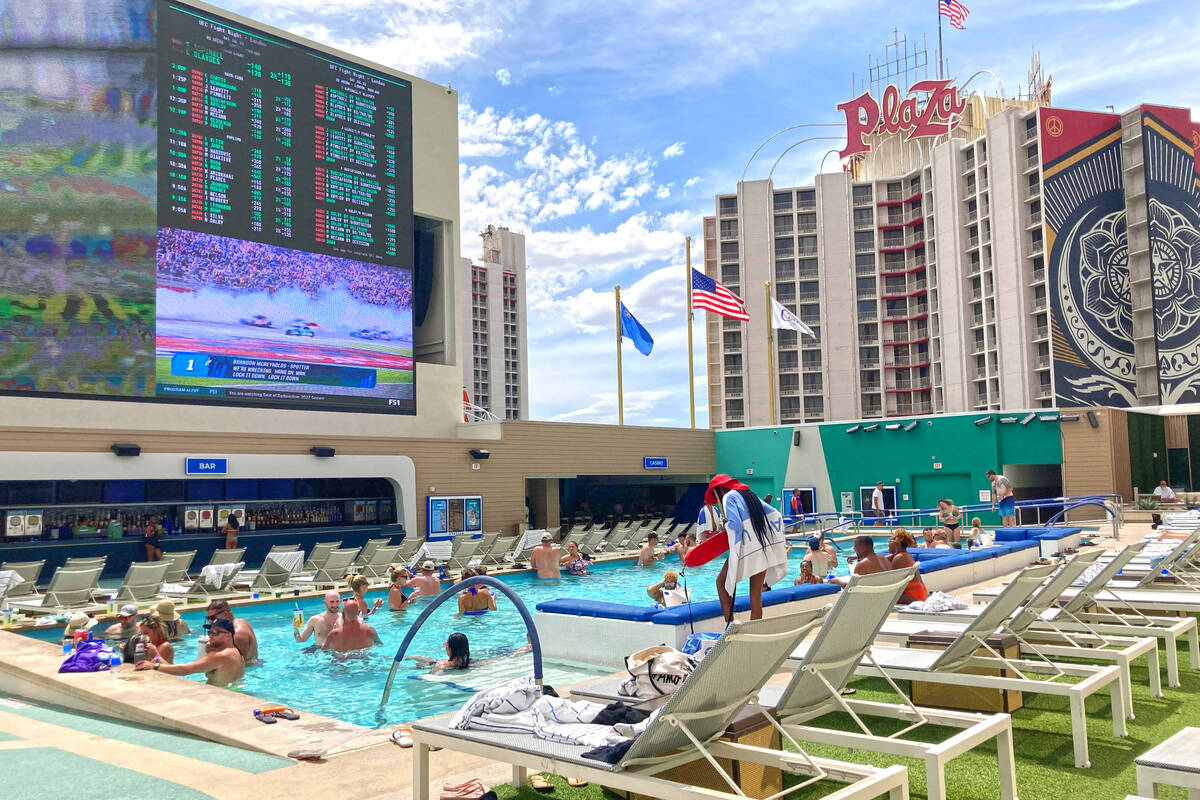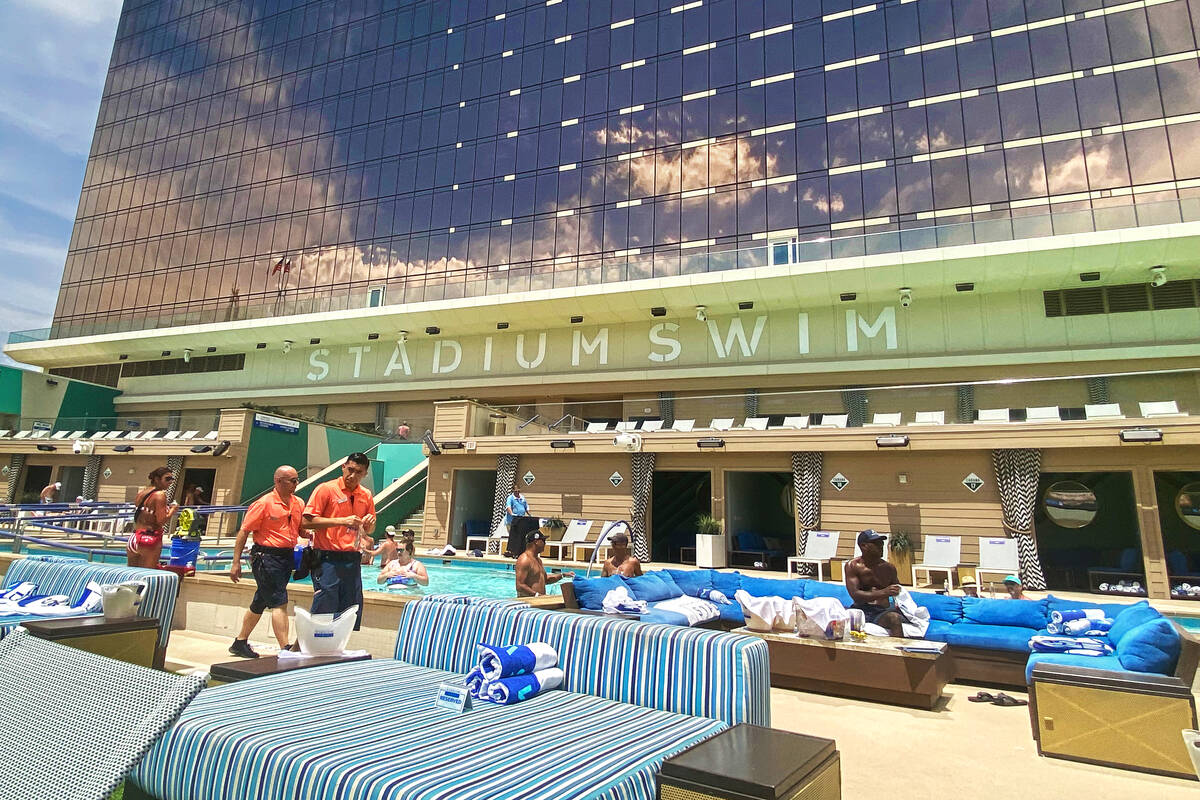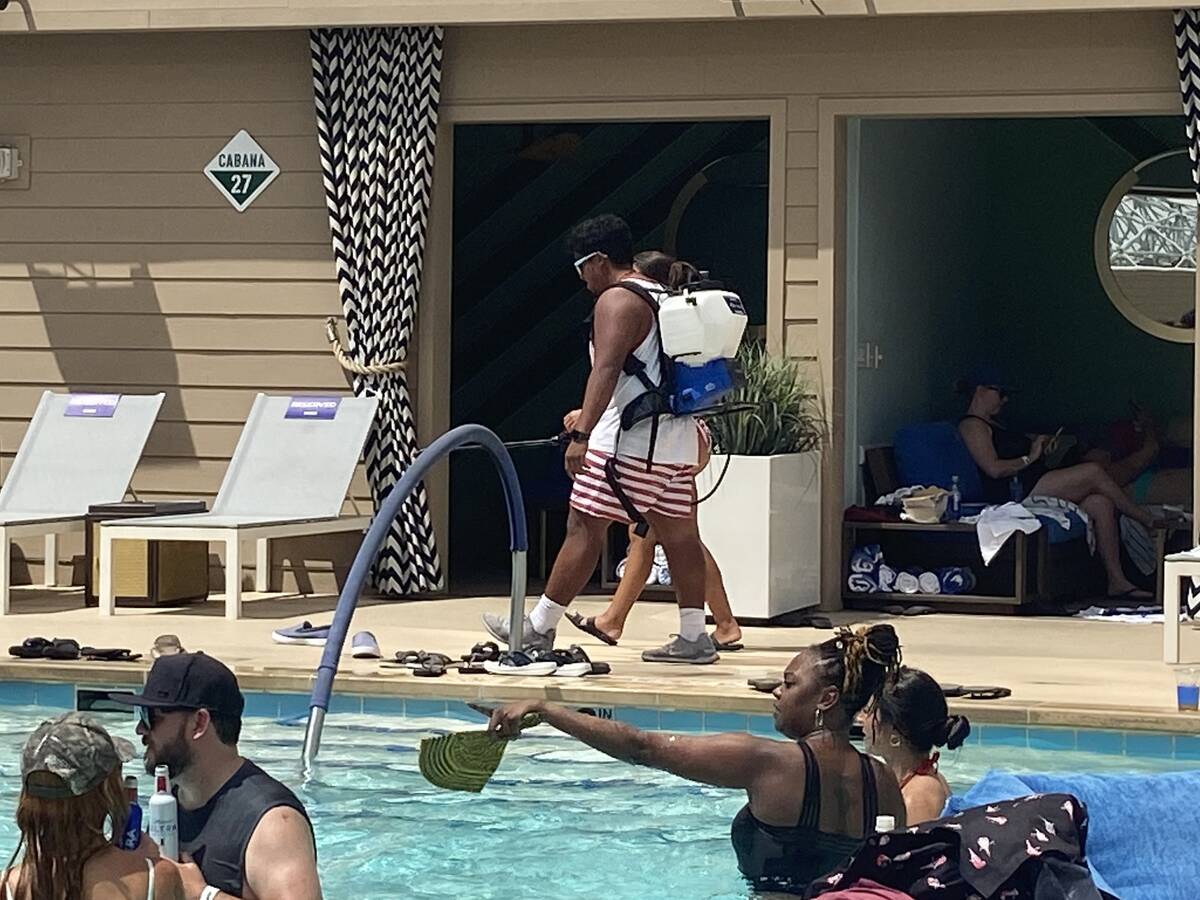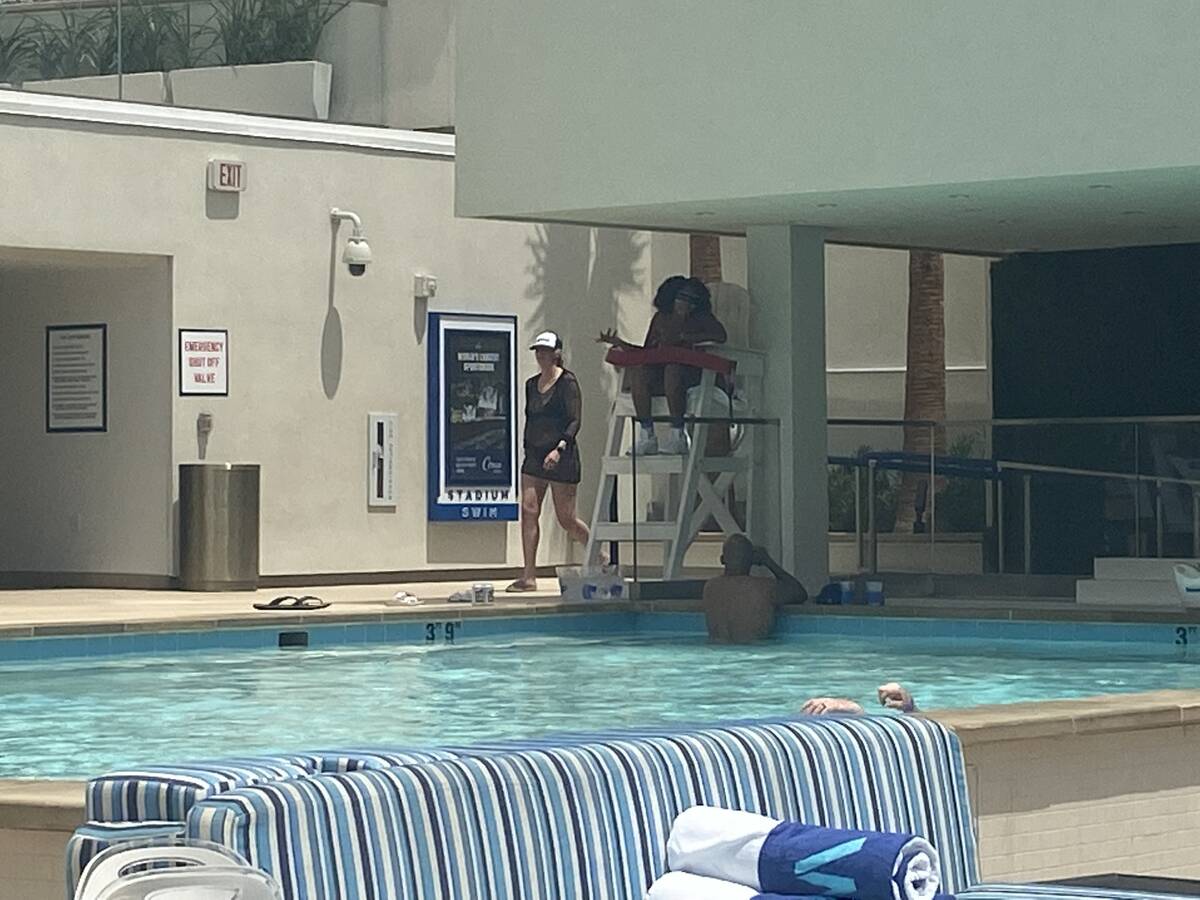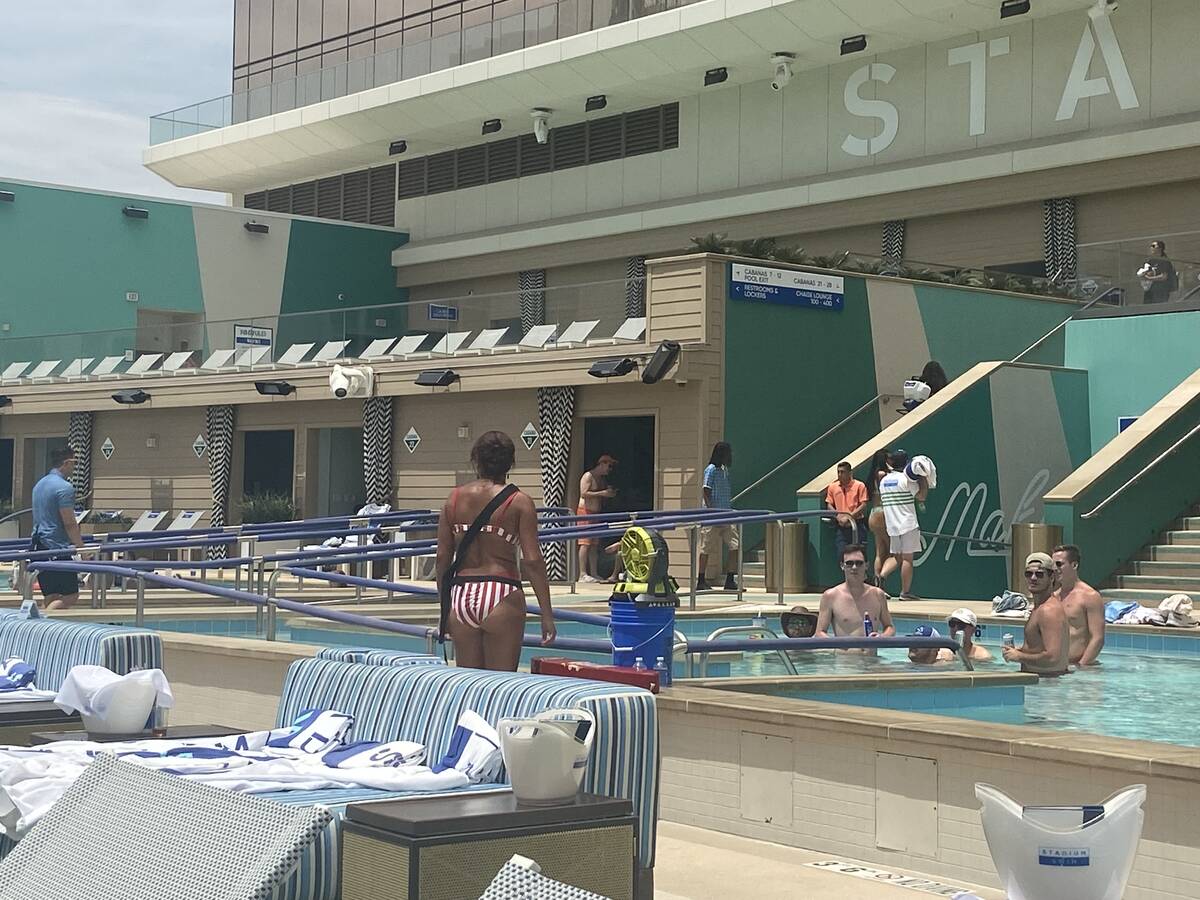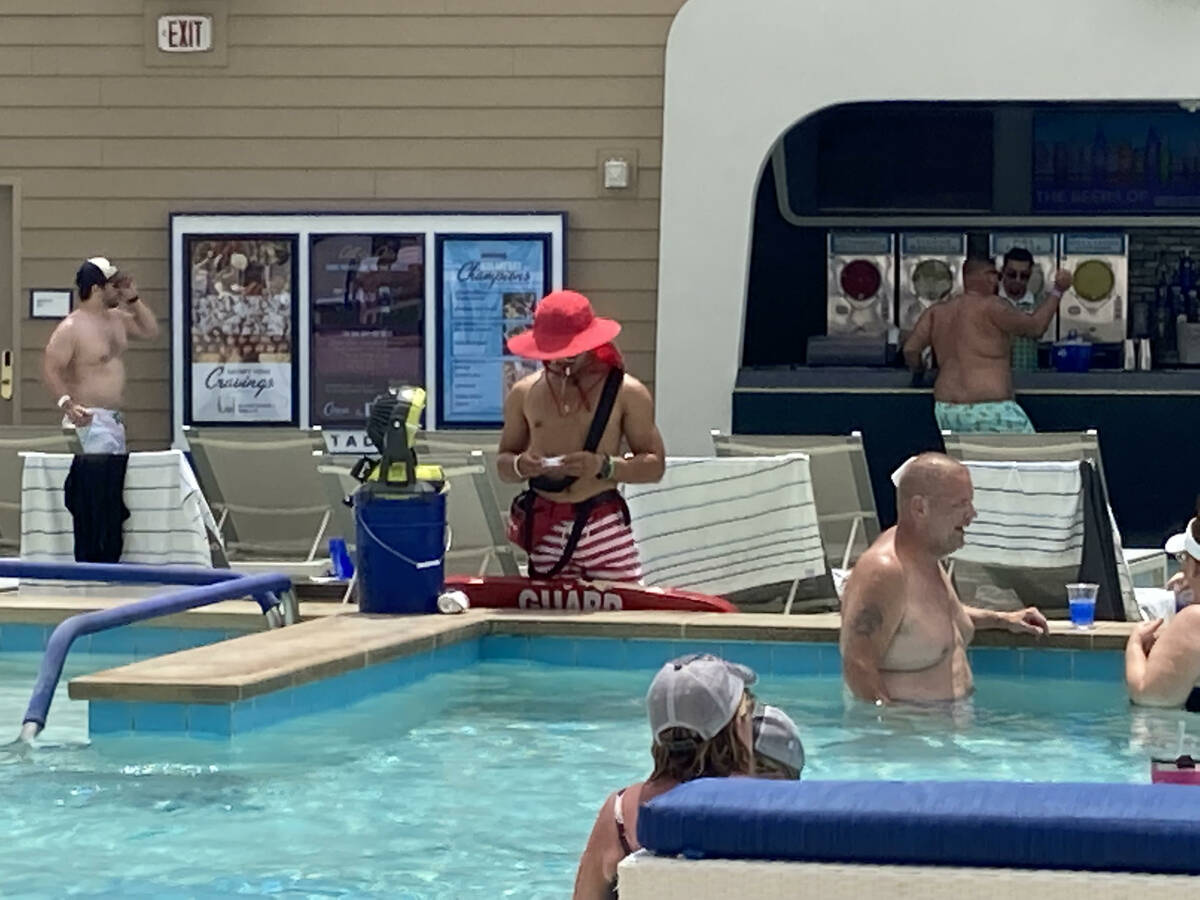Workers battle the heat — no A/C, no shade, no water breaks
Broken or no air conditioning for months. No shade for hours. No water breaks.
These are some of the hundreds of heat-related complaints reported to the Nevada Occupational Safety and Health Administration (OSHA) as protecting workers from heat illness draws increased attention.
What’s unexpected about most of the complaints is that they’re primarily from those working indoors.
“There are a lot of heat issues indoors in Nevada,” said Victoria Carreón, administrator at the Nevada Department of Business and Industry, Division of Industrial Relations. It could be “issues related to air conditioning or some other heat-producing equipment.”
The Review-Journal analyzed 547 OSHA complaints made between 2017 and 2021 as a new state program launched to safeguard workers in outdoor and indoor settings, modified for Nevada’s hot and dry climate.
Over 35 percent of the complaints — the largest amount from a single sector — came from workers in the leisure and hospitality sector, which comprises restaurants, casino/resorts and hotels, the records showed.
The second-highest number of complaints came from retail, making up just over 19 percent.
There were far fewer complaints from sectors considered high risk for working outside in the heat, such as construction, which only made up five percent of the complaints.
“Any good construction company doesn’t want their workers croaking from the heat,” said Dale Walsh, certified industrial hygienist. “When you go to a construction site, there will be all sorts of water available and instructions on how to recognize heat stress and heat stroke.”
Supply chain causes heat woes
The majority of heat complaints from indoor workers were about broken or malfunctioning air conditioning, causing temperatures to sometimes exceed 100 degrees.
Workers reported feeling nauseous, fatigued and dizzy during their shifts, records show. In some instances, workers were sent home after showing signs of heat illness.
The data the Review-Journal obtained only identifies the date, name and location of the business receiving the complaint. It does not identify the person who made the complaint.
Jim Brock, franchise founder of Simple Computer Repair, LLC, which drew a complaint in 2021, recalled when the air conditioning in the store was broken for over a month. “It was miserable,” he said. “Sometimes customers would leave because it was so hot.”
While the landlord was cooperative and responsive, Brock said that supply chain issues associated with the pandemic delayed the repair. Ultimately, the landlord replaced the unit altogether instead of waiting for the part. But in the meantime, fans were brought in to keep the store as cool as possible.
Similar sentiments were echoed by Michael Araquil, a manager at Chili’s Grill & Bar on Charleston Boulevard. The restaurant received a complaint in August 2021 that claimed the air conditioning had been out for a month, causing temperatures in the dining and kitchen areas to reach 94 degrees — and that it wasn’t expected to be repaired until October.
Araquil said management was aware of the issue and had already ordered the repair parts before the complaint was made, but supply chain delays meant that the parts didn’t arrive for months.
“We did everything we could possibly do to keep [employees] cool,” he said. The location brought in swamp coolers temporarily while waiting for the parts and offered ice cream to employees.
OSHA closed both of these complaints after sending an inquiry letter about the hazard to the businesses and receiving their responses.
Inquiry letters are the most common way that OSHA responds to heat-related complaints. Out of the 547 heat-related complaints from 2017 to 2021, 425 were addressed by sending an inquiry letter.
When an employer receives the letter, an employer has a given number of days to respond with information and evidence about how they are addressing the hazard. If the response is adequate, OSHA will close the complaint. But if it’s inadequate, OSHA can request additional information or open a formal on-site inspection.
Nevada OSHA launched inspections in response to 43 complaints, usually when there were other, more immediate, serious hazards in addition to the heat, such as not having access to water or exposure to hazardous chemicals.
Indoor companies, outdoor workers
While less frequent than heat complaints from indoor workers, those from outdoor workers are often more severe.
For example, Circa Resorts LLC received three complaints during the summer of 2021 from employees at its Stadium Swim pool area, which opened in October 2020.
The complaints alleged that employees were not provided with adequate shade and were expected to stand in the direct sun for most of their shift. One complaint stated, “Employees have lost consciousness while exposed to the heat stress.” Another complaint said that workers were not provided with shade for up to six hours.
The Review-Journal observed the working conditions for lifeguards at Stadium Swim in July and found that eight were standing in direct sunlight at any given time around pools and two lifeguards were sitting at shaded lifeguard stations.
But several measures were in place to mitigate the effects of working in the extreme heat. The lifeguards in direct sunlight were provided with cold water and a fan that misted cool water on them. Lifeguards were only standing at a given position for 30 minutes at a time before rotating to another job.
At least two lifeguards roamed the area about every 15 minutes, providing water, checking on employees’ well-being and occasionally spraying lifeguards with cool water.
One lifeguard, who requested their name not be used, confirmed at least a few instances of heat illness so far in 2022 but said that employees who show signs of heat illness can recover indoors and are then sent home for the rest of their shift.
Circa Resorts did not respond to multiple requests for comment about working conditions and heat mitigation efforts at Stadium Swim. All three of the heat complaints at Circa Resorts were closed by Nevada OSHA.
Underreported complaints, new regulations
Heat complaints are entirely self-reported, meaning that complaint data only captures part of the story.
“Although there are very clear trends in the data,” Carreón said, “we know that the data is very incomplete because there could be many other locations that have issues both indoors and outdoors where people are not aware of their ability to send a complaint to OSHA.”
She added that certain workers, such as those from immigrant communities, often have concerns about submitting complaints for fear of retaliation from employers.
And heat-related illnesses are often underreported because heat is overlooked as a contributing factor to an injury. “You could have a fall that was precipitated by the heat, but the actual entry that gets recorded is [only] the fall,” Carreón said.
If a heat-related illness doesn’t require hospitalization or cause a fatality, it doesn’t need to be reported to OSHA, meaning that injuries not needing treatment might fly under the radar.
Although Nevada doesn’t currently have an enforceable heat illness standard, OSHA kicked off a heat emphasis program earlier this summer to address heat-related illnesses.
Nevada OSHA has also proposed a new regulation, R053-20, that would create an enforceable heat illness standard.
Under this standard, employers with workers exposed to temperatures above 90 degrees would be required to have a workplace program for managing heat illness, including providing access to water and shade or something equivalent during daylight hours and monitoring the acclimatization of new employees for the first two weeks of their employment.
The regulation would have to go before Legislative Commission before going into effect, but it has not been scheduled for discussion.
Former news reporting intern Teghan Simonton contributed to this story.
Contact Sean Hemmersmeier at shemmersmeier@reviewjournal.com or on Twitter @seanhemmers34
Colton Poore was a 2022 Mass Media reporting fellow for the Review-Journal through the American Association for the Advancement of Science. Follow him on Twitter @coltonlpoore.
Submitting complaints about workplace conditions
Workers concerned about the heat or any other workplace hazard can submit a complaint to Nevada OSHA online, by phone at (702) 486-9020 or by mail at Nevada OSHA, 3360 West Sahara Avenue, Suite 200, Las Vegas, NV 89102.They can also bring the issue before their management or a union representative if they have one.
Training for employers
Nevada Safety Consultation and Training Section (SCATS) will also be offering a virtual training on Aug. 17 to inform employers and others on managing heat-related illnesses in the workplace.



